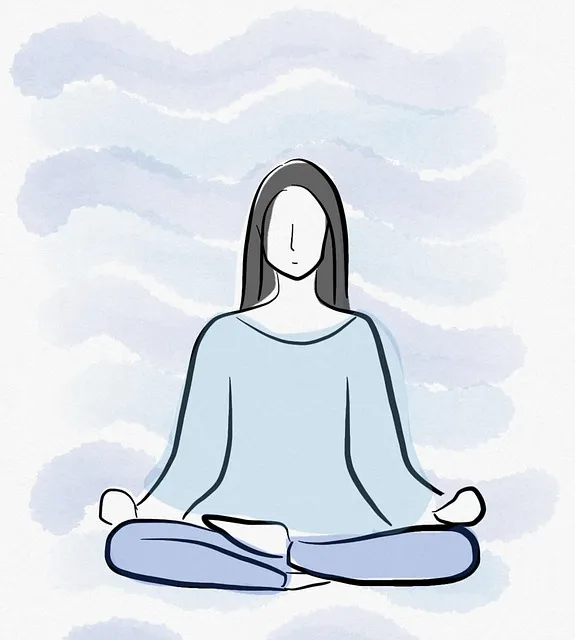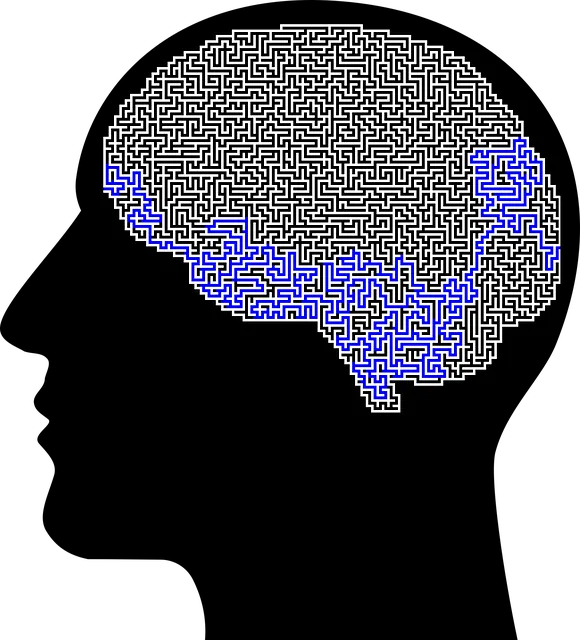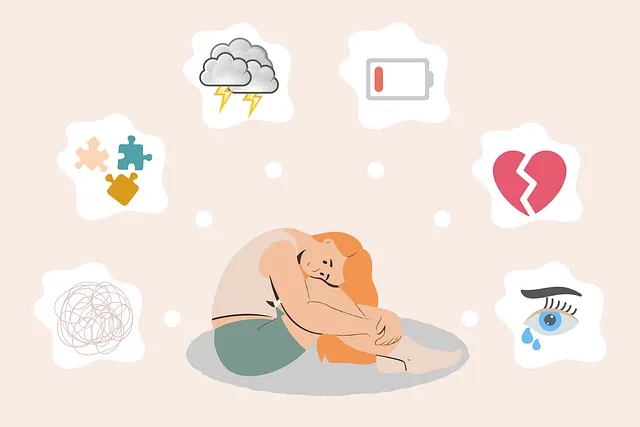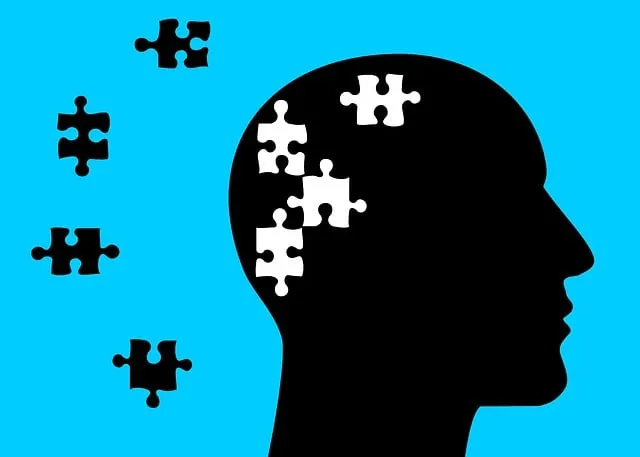The Parker Kaiser Permanente mental health facility tackles stress as a modern challenge with multifaceted approaches. They combine evidence-based practices like Cognitive Behavioral Therapy (CBT) to target negative thought patterns, mindfulness techniques for emotional well-being, and physical activity to stimulate positive hormone release. The facility advocates for holistic stress reduction through proper nutrition, sleep, and social connections, promoting personalized coping strategies aligned with their Mental Health Policy Analysis and Advocacy approach.
Stress reduction is a vital aspect of maintaining good mental health, as highlighted by experts at the renowned Parker Kaiser Permanente Mental Health Facility. This article explores effective methods to combat stress, offering valuable insights for those seeking solace in a bustling world. From understanding the root causes and impacts of stress to powerful tools like Cognitive Behavioral Therapy (CBT) and mindfulness practices, we provide a comprehensive guide. Additionally, discover the transformative power of physical activity, lifestyle adjustments, and their profound effects on stress levels, culminating in improved mental well-being.
- Understanding Stress: Causes and Effects at Parker Kaiser Permanente Mental Health Facility
- Cognitive Behavioral Therapy (CBT): A Powerful Tool for Stress Management
- Mindfulness Practices: Cultivating Calm in a Busy World
- Physical Activity and Exercise: The Role in Reducing Stress Levels
- Lifestyle Changes: Nutrition, Sleep, and Social Connections for Better Mental Well-being
Understanding Stress: Causes and Effects at Parker Kaiser Permanente Mental Health Facility

Stress is a pervasive aspect of modern life, yet understanding its intricacies is key to managing it effectively. At Parker Kaiser Permanente Mental Health Facility, experts delve into the multifaceted nature of stress, recognizing its causes range from work-related pressures and financial worries to interpersonal conflicts and major life changes. These factors trigger physiological and psychological responses, leading to both short-term symptoms like increased heart rate and anxiety, as well as long-term consequences such as chronic illnesses and cognitive impairments.
The facility emphasizes the importance of Mental Health Awareness and promotes various stress reduction methods. Communication Strategies play a pivotal role in addressing stressors; open dialogue can prevent and mitigate issues. Moreover, advocacy for better mental health policies is encouraged, aligning with the Mental Health Policy Analysis and Advocacy approach to create supportive environments at both individual and societal levels.
Cognitive Behavioral Therapy (CBT): A Powerful Tool for Stress Management

Cognitive Behavioral Therapy (CBT) is a highly effective and evidence-based approach to managing stress, offered at the Parker Kaiser Permanente mental health facility. This therapeutic method focuses on identifying and changing negative thought patterns that contribute to stress and anxiety. By challenging these distorted thoughts and replacing them with more realistic and positive ones, CBT empowers individuals to develop healthier coping mechanisms.
At the Parker Kaiser Permanente facility, trained therapists guide patients through this process, helping them gain a deeper understanding of their thoughts and emotions. This awareness allows for the development of confidence-boosting strategies that can prevent burnout and promote long-term well-being. Through CBT, individuals learn valuable coping skills to navigate stressful situations, ensuring they can maintain mental resilience even in challenging circumstances.
Mindfulness Practices: Cultivating Calm in a Busy World

In today’s fast-paced world, mindfulness practices have emerged as a powerful tool for cultivating calm amidst the hustle and bustle. At Parker Kaiser Permanente mental health facility, experts emphasize that incorporating techniques like meditation and deep breathing into daily routines can significantly enhance emotional well-being promotion techniques. These simple yet effective methods help individuals navigate the challenges of modern life, fostering positive thinking and emotional healing processes.
By focusing on the present moment and observing thoughts without judgment, mindfulness allows folks to detach from stressful situations and cultivate a sense of inner peace. This practice, which has its roots in ancient traditions, is now supported by extensive research highlighting its benefits for mental health. Whether through guided meditations or mindful walking, these practices offer a peaceful sanctuary within the chaotic landscape of daily life.
Physical Activity and Exercise: The Role in Reducing Stress Levels

Physical activity and regular exercise have been recognized as powerful tools in managing and reducing stress levels by mental health professionals at Parker Kaiser Permanente. Engaging in physical exertion stimulates the release of endorphins, often referred to as ‘feel-good’ hormones, which can significantly enhance one’s mood and overall sense of well-being. This natural response to exercise acts as a powerful antidote to stress and anxiety by promoting relaxation and improving sleep quality.
At Parker Kaiser Permanente, mental health professionals emphasize the importance of incorporating physical activity into daily routines, especially for those at risk or dealing with mental health challenges. The Risk Assessment for Mental Health Professionals highlights the significance of exercise in building inner strength and developing coping mechanisms. Additionally, maintaining a mental wellness journal while engaging in physical activities can offer guidance on stress triggers and provide an outlet for emotional expression, further fostering recovery and resilience.
Lifestyle Changes: Nutrition, Sleep, and Social Connections for Better Mental Well-being

At Parker Kaiser Permanente mental health facility, we understand that cultivating a healthy lifestyle is a cornerstone in stress reduction and overall mental well-being. Nutrition plays a pivotal role; incorporating nutrient-rich foods not only fuels your body but also supports brain function and emotional stability. Adequate sleep, often overlooked yet indispensable, allows the mind and body to rejuvenate, enhancing resilience against stressors. Furthermore, fostering robust social connections can provide a powerful buffer against anxiety and promote inner strength development.
Our approach focuses on holistic strategies that go beyond traditional therapy. We encourage individuals to engage in regular physical activity, practice mindfulness techniques, and cultivate positive coping mechanisms tailored to their unique needs. By integrating these lifestyle changes, our clients at Parker Kaiser Permanente not only find effective anxiety relief but also develop a stronger sense of equilibrium, enabling them to navigate life’s challenges with greater ease.
Stress reduction is a multifaceted approach, as demonstrated by the various methods discussed in this article. From understanding stress triggers at the Parker Kaiser Permanente Mental Health Facility to adopting evidence-based techniques like CBT and mindfulness practices, each strategy offers unique benefits for managing stress effectively. Integrating physical activity, making lifestyle changes, and prioritizing nutrition, sleep, and social connections can significantly enhance mental well-being. By combining these approaches, individuals can navigate life’s challenges with resilience and cultivate a calmer, more balanced state of mind.






